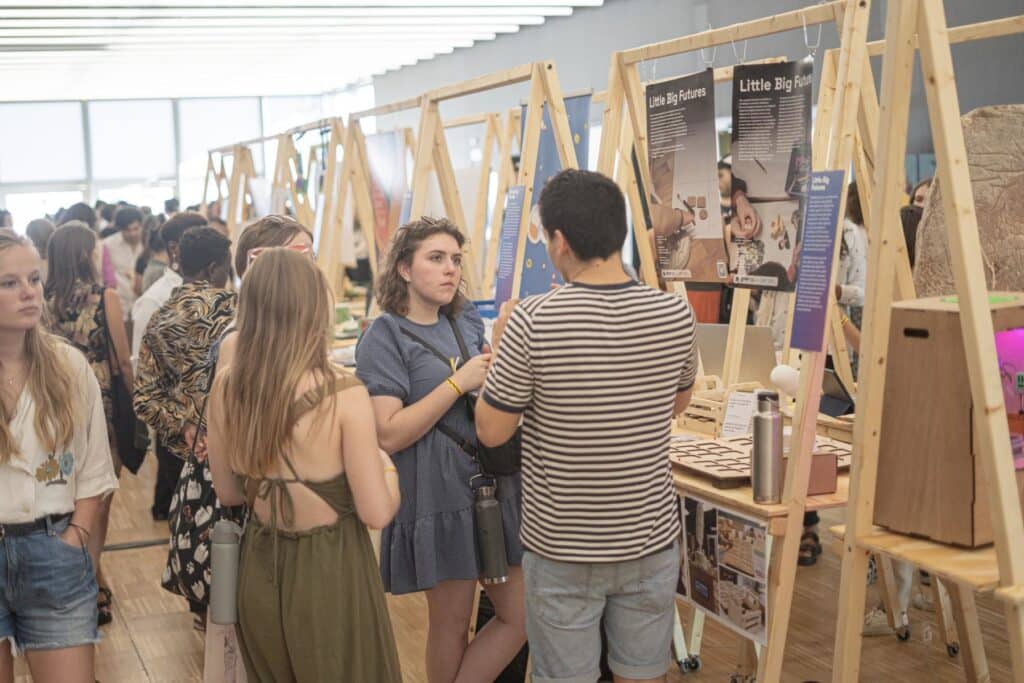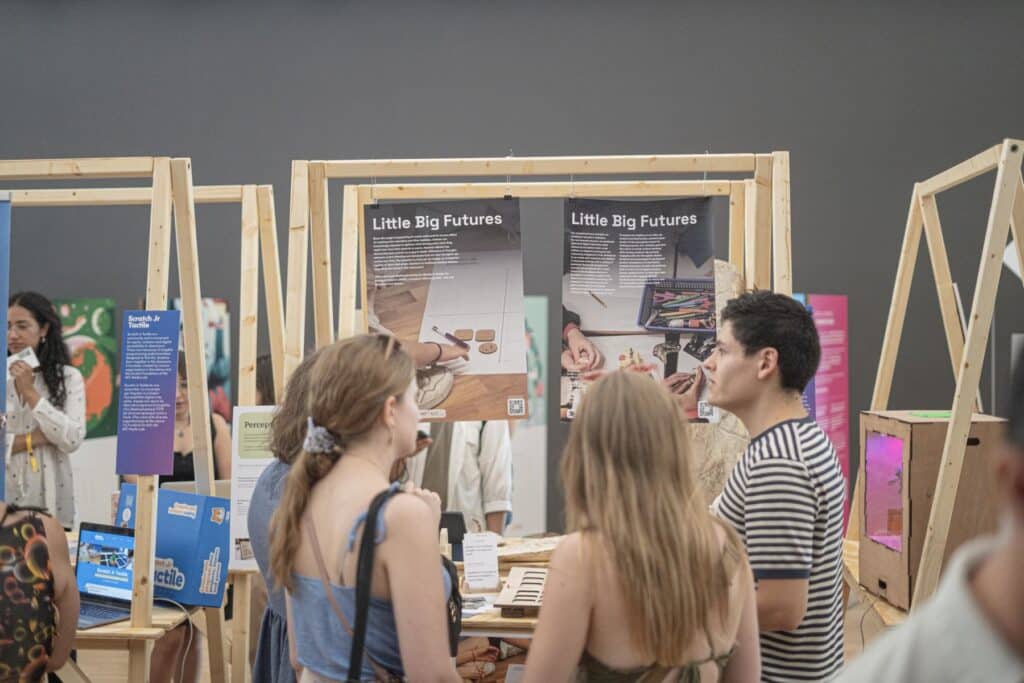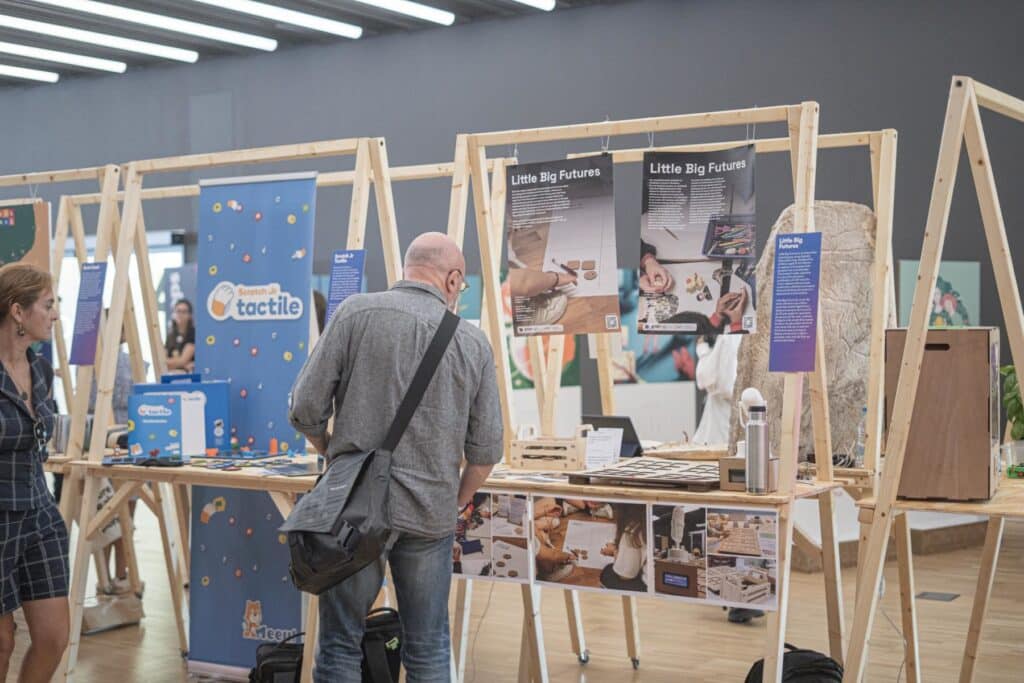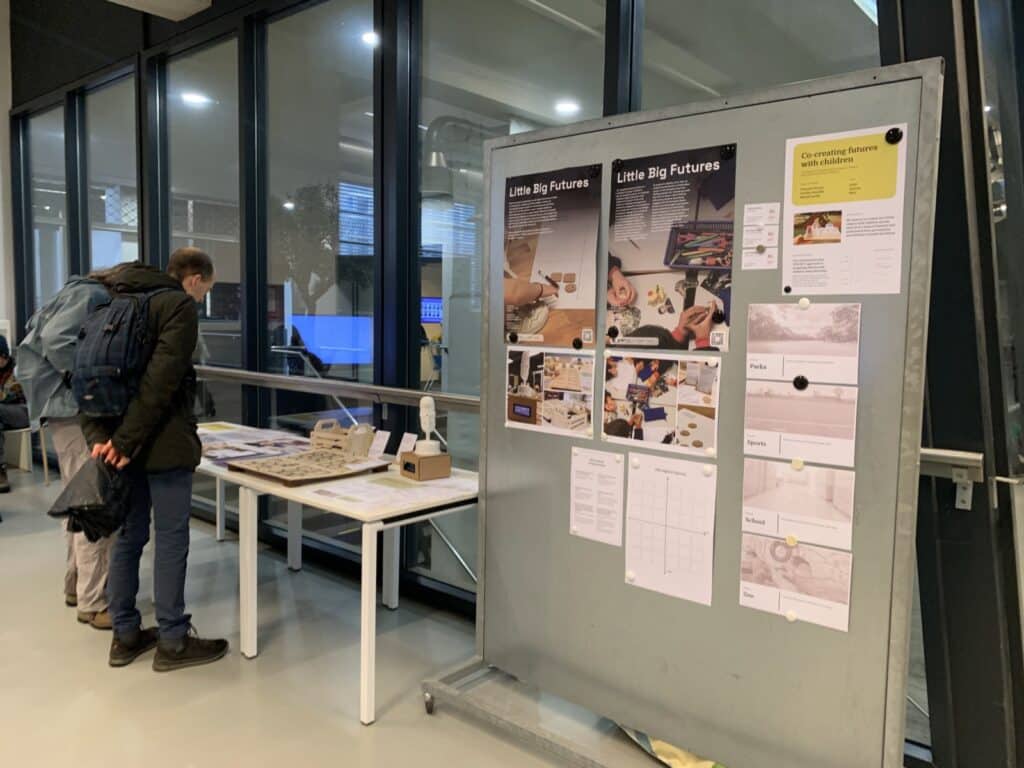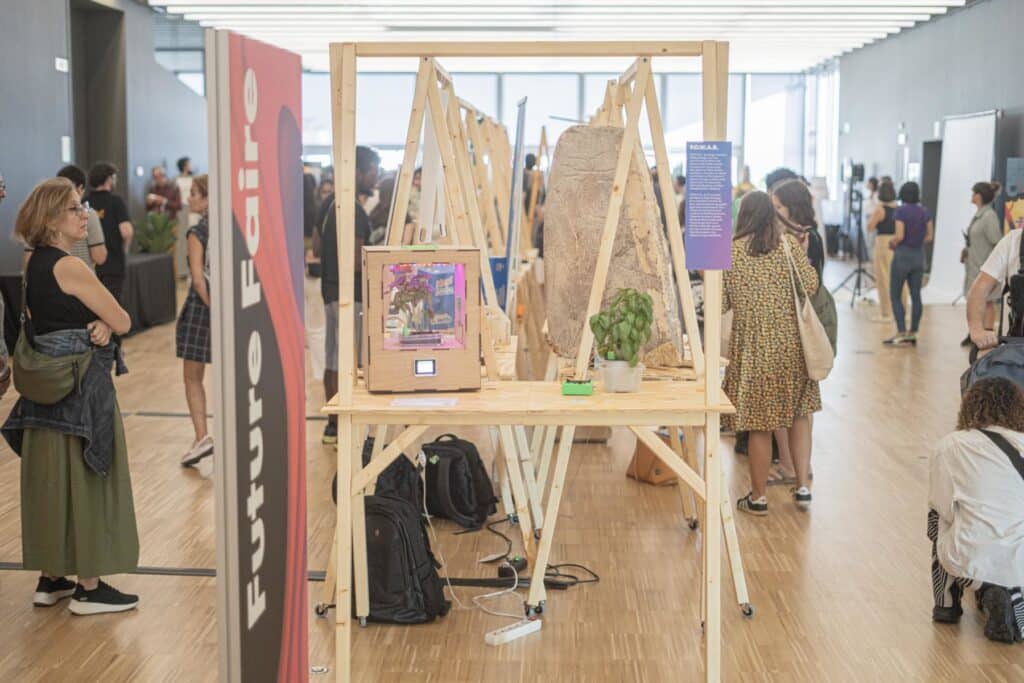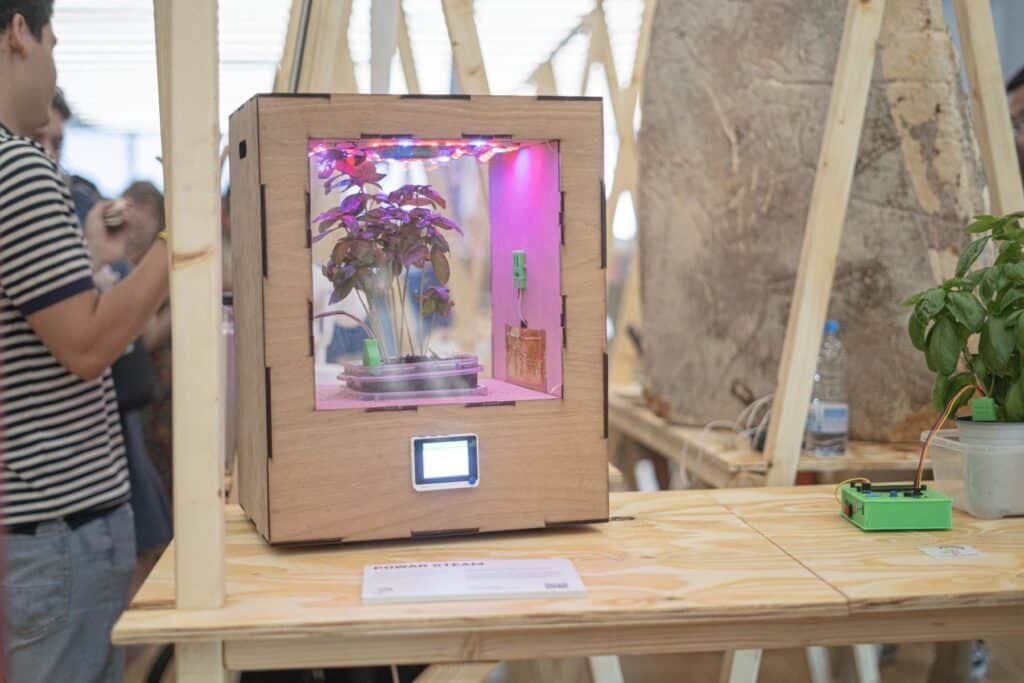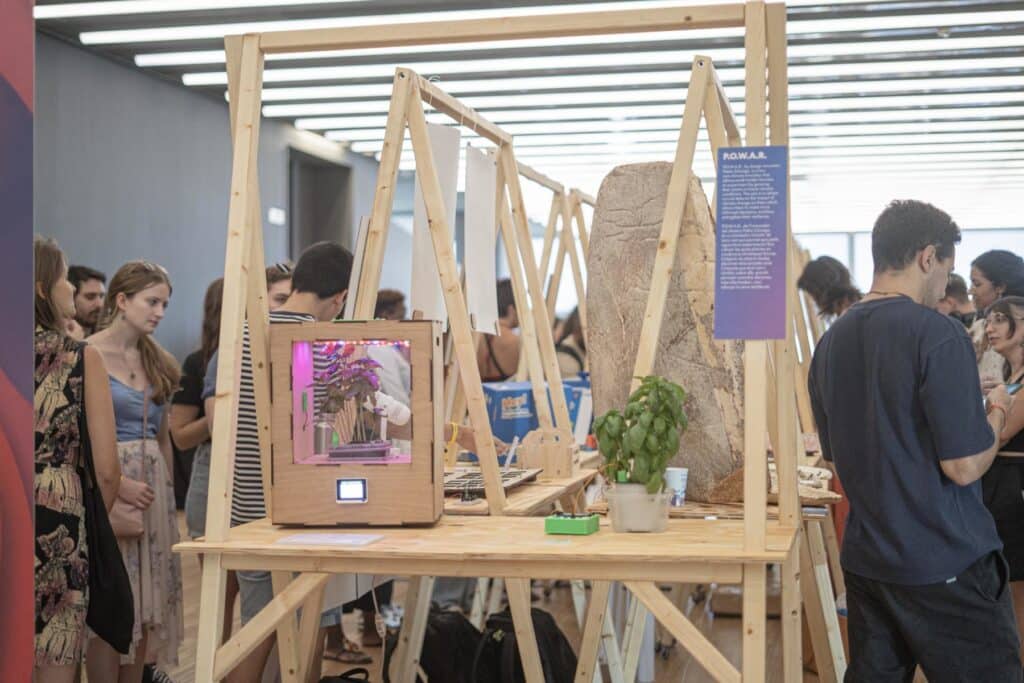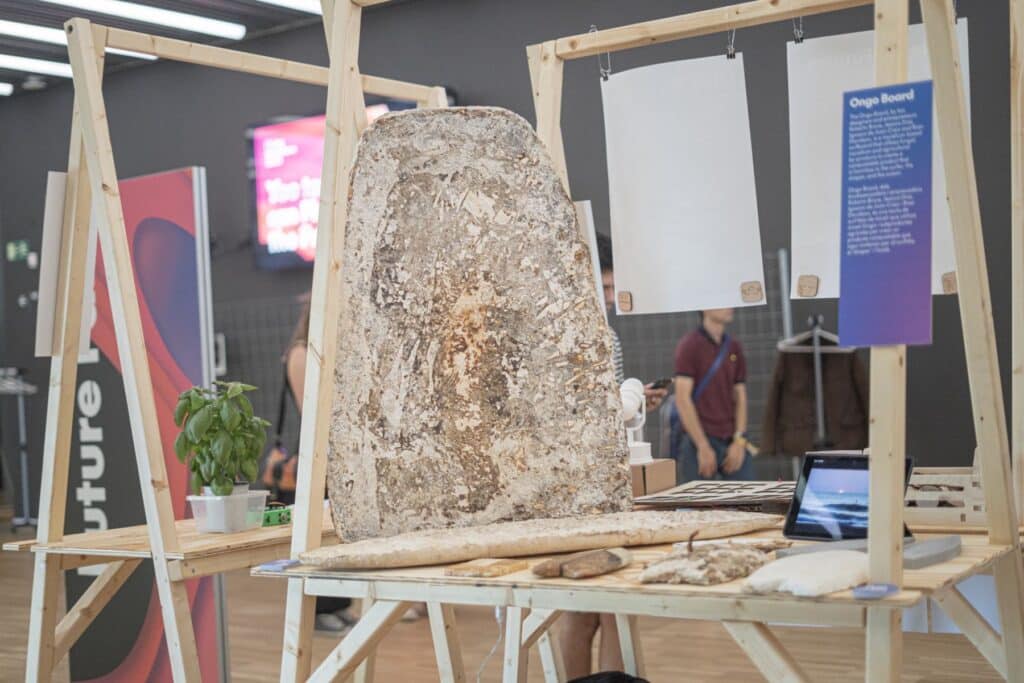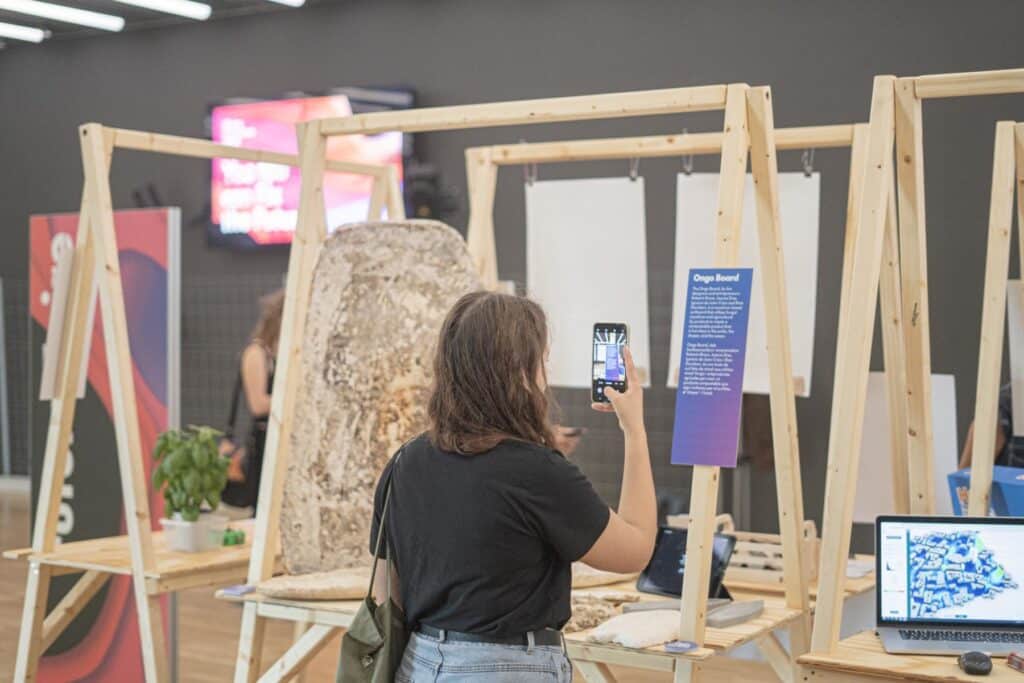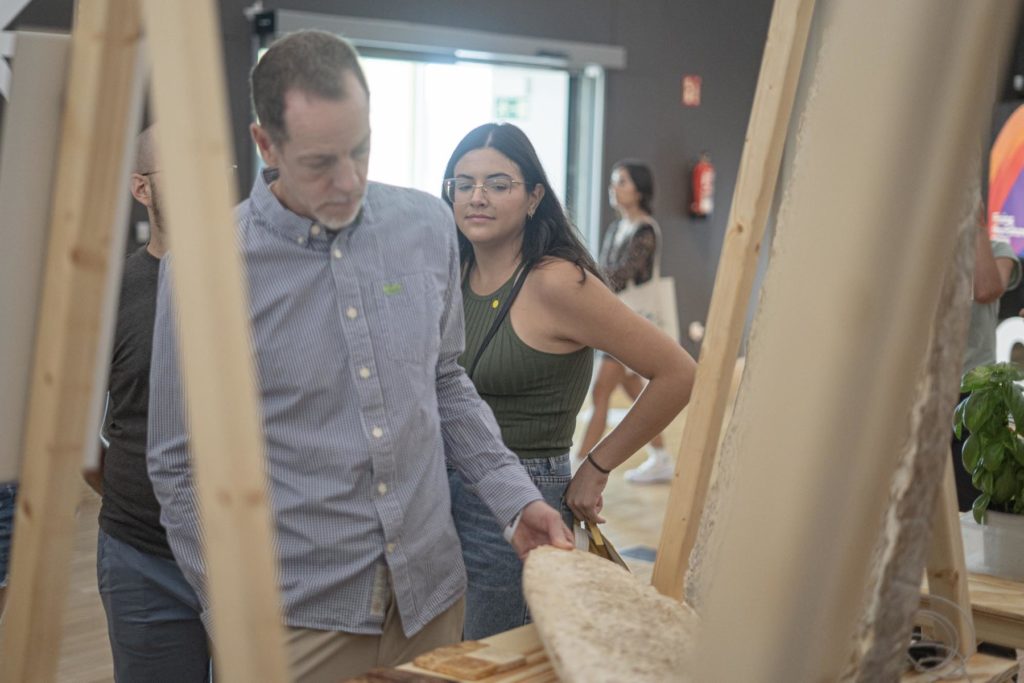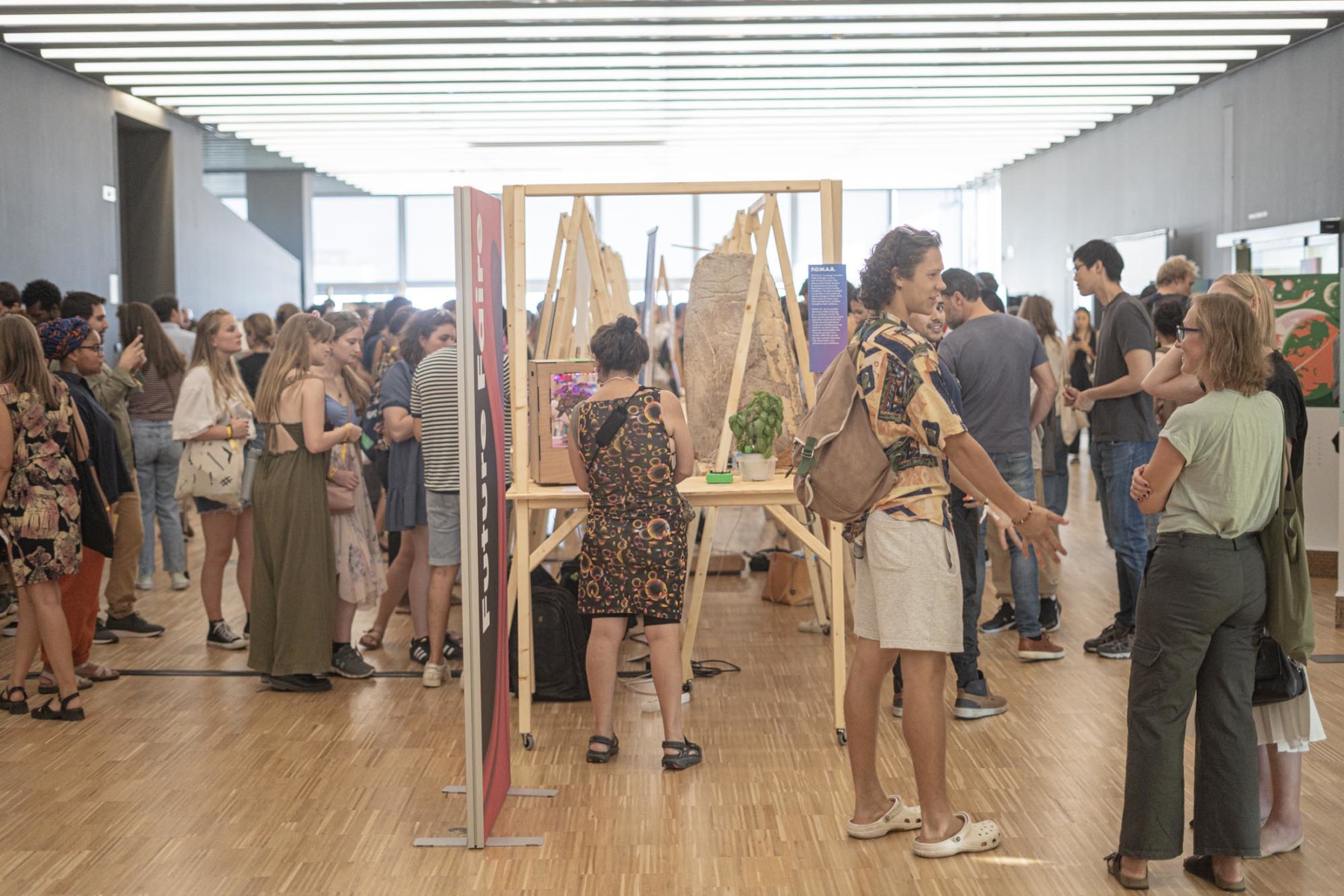
Giving visibility to future-shaping projects
Projects created by alumni of the Master in Design for Emergent Futures were exhibited at Dutch Design Week and Fixing the Future
Three projects by alumni of the Master in Design for Emergent Futures (MDEF) were featured recently at Dutch Design Week in Eindhoven and Fixing the Future Festival in Barcelona. Both events offered spaces dedicated to sharing, inspiring, asking critical questions and taking action to change the world for the better. Throughout their duration, MDEF alumni had the opportunity to invite visitors to learn about and engage with their future-shaping projects.
The project exhibited at Dutch Design Week was Little Big Futures, which was accompanied by POWAR and Ongo Board at the Fixing the Future Festival. Discover the projects and the events they took part in!
Little Big Futures
Given the surge in popularity of social media and its proven effect of creating echo chambers and filter bubbles, children are increasingly exposed to opinions that already echo what they might hear from their parents or peers. However debate has historically been proven as a way to foster difference of thought, welcome active listening and showcase how our own thoughts can evolve over time. In addition, children and adolescents are taught about the world’s climate crisis but are seldom given tools to ideate futures that are desirable, inclusive and also bold. Children may get drowned in the complexity of the problem and may lack the imagination and skill sets to actively co-create futures.
Little Big Futures, by Wen Qian Chua, Ariel Ignacio Gallardo Lopez and Jimena Lucia Salinas Groppo is an interactive board game using digitally fabricated tools, designed for children aged 12 and above to explore and express their perspectives and attitudes. The project’s wider objective is to provide educators worldwide with DIY tools for 1-hour sessions that promote constructive debates and inspire forward-thinking discussions in educational environments.
POWAR
POWAR (Plant Observatory of Weather Adaptability for Resilience) is a DIY, low-cost, open-source climate simulator to grow food under different weather conditions. It is a box that connects to the internet and downloads real-time data from a weather API through MQTT and can replace in its interior some weather characteristics like the amount of sunlight, water, or temperature. It works with an ESP32, that is connected through WiFi to a NodeRED server, to visualize data from different sources and to interconnect the information from the sensors, the weather API, and the actuators. The aim is to obtain crucial data on the impact of climate change on them which allows them to make more informed decisions, and thus strengthen their resilience.
Ongo Board
The modern surfboard comprises layers of unrecyclable plastic which often break and pollute our oceans. Ongo Board, by bio designers and entrepreneurs Roberto Broce, Jessica Dias, Ignacio de Juan-Creix and Rian Davidson, is a mycelium-based surfboard that utilises fungal mycelium and agricultural by-products to create a compostable product that is harmless to the surfer, the shaper, and the ocean. Myco-composites provide the perfect foundation for a surfboard due to their lightweight construction and buoyancy. Building a 100% biodegradable surfboard allows the investigation of how low tech solutions of grown materials could compete with industry standard petroleum based materials for high performance sports, which can serve as a springboard for more complex experiments with fungal materials. Learn more about the project in our interview with MDEF alumni Roberto Broce here.
Fixing the Future
On 12, 13 and 14 October the fourth edition of Fixing the Future Festival took place at Design Hub Barcelona, bringing together the 25 best future-shaping projects from across the world—from adapting AI technologies to farming innovation to drought mitigation to creative recycling. Visitors had the opportunity to meet the change-makers over a range of panel discussions, debates, workshops and performances.
Fab Lab Barcelona and IAAC collaborated with Fixing the Future by engaging in a participatory initiative aimed at repurposing discarded wood strips, granting them a new lease of life as exhibition stands inside the Future Faire. Read about the making process here.
Dutch Design Week
Each year in October, Dutch Design Week (DDW) takes place in Eindhoven. One of the biggest design events in Europe presents work and ideas of more than 2600 designers to more than 350,000 visitors from home and abroad. In more than 110 locations across the city, DDW organizes and facilitates exhibitions, lectures, prize ceremonies, networking events, debates and festivities. DDW concentrates on the design of the future and the future of design. This year the event took place from 21st to 29th of October.
Want to design innovative projects that have the power to change the future?
Discover the Master in Design for Emergent Futures!
